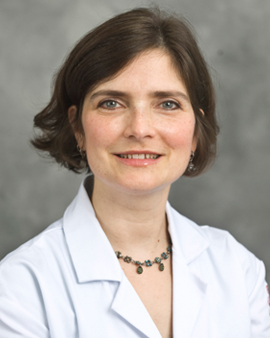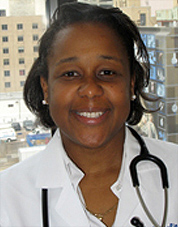First Annual Women’s Leadership Summit Tackles the Challenges of COVID-19, Racism
December 21, 2020
The Women in Medicine and Science Committee (WIMSC) was months away from holding its inaugural Women’s Leadership Summit, a discussion of gender equity in medicine and science, when restrictions took affect across the United States to help prevent the spread of COVID-19. By the time the first annual iteration of the event began on Friday, Dec. 11, the pandemic had impacted not only the timing and format of the conference, but also its focus – and organizers say that latter change was one for the better.
The event tackled gender equity in STEM through the lens of the impact of the pandemic on women in leadership in science and clinical and academic medicine.
“We decided this fall to pivot [to discuss the repercussions of the pandemic], and it was such a wonderful, timely opportunity,” said Karen Berkowitz, MD*, an associate professor in the Departments of Biochemistry & Molecular Biology and Obstetrics & Gynecology and WIMSC chair.

Karen Berkowitz, MD
The Summit, held this year on Zoom, allowed participants from across the College of Medicine community – and women at varying stages in their careers – to connect virtually. There was pre-program networking as well as mid-afternoon breakout sessions, organized by career level, that allowed women to connect and discuss COVID-19's impact on women in STEM.
Event attendees heard from women in medicine and science about such topics as facing leadership challenges, the qualities of effective leaders, the lessons they have learned from personal experiences, and more. At the close of the Summit, representatives of the Office of Diversity, Equity and Inclusion spoke on diversity in medicine and science and on the ways that women are impacted by COVID-19 and structural racism.
Also included in the program was the presentation of the WMC/MCP Phyllis Marciano, MD, WMC ‘60, Woman in Medicine Award, given annually to a female physician, scientist, or staff member to recognize her leadership, teaching of students, care of patients and status as a role model for women in medicine. This year’s winner is Nathalie S. May, MD*, an associate professor in the Division of Internal Medicine.
“It was an honor to be presented the award at the Women’s Leadership Summit because women have lagged behind men in terms of recognition, but we have made great headway,” May said. “It was great that there were so many women leaders, including previous winners of the Marciano award, at the Summit. It made the day even more special.”

Nathalie S. May, MD
In her clinical work and as a medical educator, Dr. May helps female trainees and students keep in mind that they can overcome any roadblocks in their way.
“I also teach them that once you achieve a certain level of success, it is your turn to nurture and foster other women to help them achieve what you have,” May said. “Or to help them achieve even more.”
Throughout her own career, May has learned from and been encouraged by women in leadership. She said that even now, when she is in a leadership role herself, her colleagues in the College of Medicine are a source of inspiration and support.
“I see all of my colleagues as awesome female leaders in their respective areas,” May said. “I think at Drexel we’re in a good place to foster female leaders because our Dean and our administration believe in gender equality and we strive to achieve that.”
Berkowitz said she is looking forward to engaging with the College of Medicine community on the topic of gender equity and women’s leadership through future Summits, and through other initiatives and future events. The Summit’s presentations and attendee participation will help WIMSC consider new ways of helping support women in STEM, including those who experience structural racism, during the COVID-19 pandemic and beyond.
“The pandemic has been stressful and harmful in so many different ways,” Berkowitz said. “We’re going to see repercussions for women and people from other marginalized groups for years to come. But that’s an opportunity for us to do something, to make a difference and help people from historically underrepresented backgrounds to succeed in medicine and science.”
*This physician's clinical practice is independent of Drexel University.